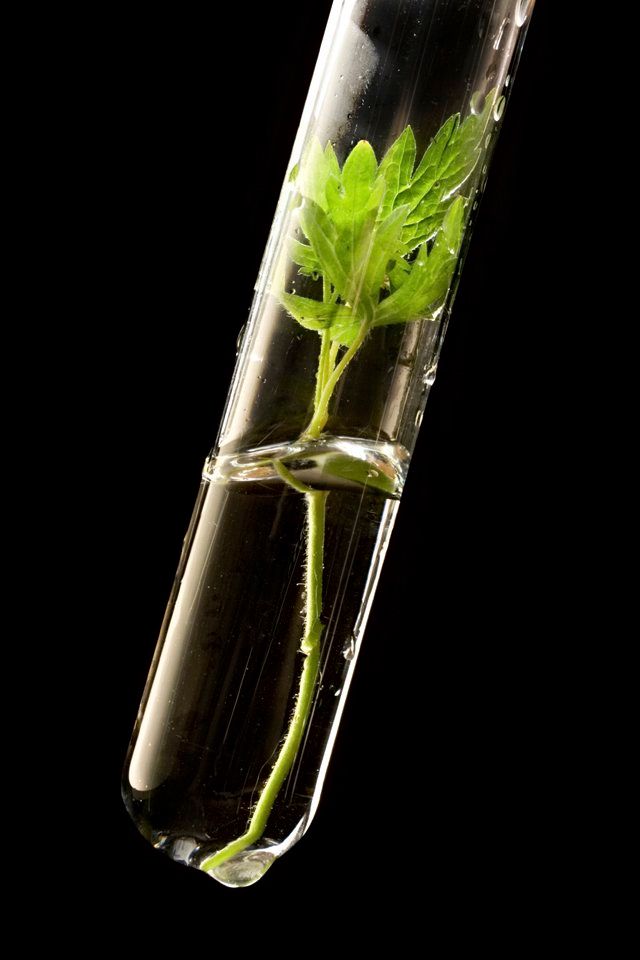New Botanical Adulterants Bulletins from American Botanical Council Dive Deep into Herbal Fraud
The first three bulletins cover adulteration information for grape seed extract, bilberry fruit extract, and skullcap, with more to come later this year.
Photo © iStockphoto.com/Garsya

The American Botanical Council (ABC; Austin, TX) introduced its new Botanical Adulterants Bulletins earlier this week, which are designed to “provide accounts of ongoing issues related to botanical identity and adulteration.” The first three bulletins cover grape seed (Vitis vinifera) extract, bilberry fruit (Vaccinium myrtillus) extract, and skullcap (Scutellaria lateriflora).
This latest series from the Botanical Adulterants Program, a joint effort by ABC, the American Herbal Pharmacopoeia (AHP), and the National Center for Natural Products Research (NCNPR), is intended to offer a timely and comprehensive review of adulteration threats facing certain botanical ingredients and the best testing technologies for detecting the adulteration.
While some of the ingredients have been covered previously in ABC’s Laboratory Guidance Documents, such as skullcap and bilberry extract, the new bulletins are designed to deliver a quicker look at several different aspects of adulteration, as well as general information on the plant species, cultivation, harvest, and market size.
“The Botanical Adulterants Bulletins represent a new phase of the Botanical Adulterants Program,” said Mark Blumenthal, founder and executive director of ABC and director of the program. “Compared to our extensive Laboratory Guidance Documents, the bulletins are a more rapid means of confirming suspected and/or alleged adulteration and will become one of the key publications of the Program’s educational activities.”
What the Bulletins Offer
For each particular botanical ingredient (and if the information is known), the Botanical Adulterants Bulletin includes sections on known adulterants, frequency of adulteration, market incentives for adulteration, possible therapeutic and/or safety issues with the adulterating species, and the best analytical approaches that have been developed to detect adulteration. Several of the new testing technologies referenced in the bulletins can also be found in Nutritional Outlook’s recent story on botanical adulteration.
And while much of this information has been compiled from published reports, the bulletins also go a step further.
“The data included in the Botanical Adulterants Bulletins are predominantly from published reports on adulteration of a particular plant species or botanical extract,” said Stefan Gafner, PhD, chief science officer at ABC and technical director of the Botanical Adulterants Program. “However, in some instances, industry companies and analytical laboratories have been forthcoming with unpublished information in their particular area of expertise, adding valuable information to the knowledge already published in the peer-reviewed literature, thus making each bulletin a more informative and relevant document.”
As far as the peer-reviewed status of the bulletins themselves, each bulletin is reviewed by at least 13 experts, with a total of 17 expert reviewers providing input on the first three bulletins.
“We are deeply grateful to the many experts from academia, government, and industry who donated their time and energy to provide peer-review services to help ensure the accuracy of these bulletins,” said Gafner. “With their invaluable assistance, these documents have a significantly high degree of credibility and authority.”
In addition to the bulletins on skullcap, bilberry fruit extract, and grape seed extract, several more bulletins are currently being peer-reviewed and are scheduled for release in the coming months. These include bulletins on arnica (Arnica montana) flower, black cohosh (Actaea racemose) root and rhizome, and goldenseal (Hydrastis canadensis) root and rhizome.
All of the Botanical Adulterants Program’s publications, including the Botanical Adulterants Bulletins, are available for free on its website.
Read more:
The Latest Testing Techniques for Catching Dietary Supplement Fraud and Adulteration
Dietary Supplements: New Testing Tools to Catch Botanical Adulteration
U.S. Herbal Supplement Sales Up 6.8% in 2014
Michael Crane
Associate Editor
Nutritional Outlook Magazine
michael.crane@ubm.com
Prinova acquires Aplinova to further increase its footprint in Latin America
April 7th 2025Prinova has recently announced the acquisition of Brazilian ingredients distributor Aplinova, which is a provider of specialty ingredients for a range of market segments that include food, beverage, supplements, and personal care.

.png&w=3840&q=75)

.png&w=3840&q=75)



.png&w=3840&q=75)



.png&w=3840&q=75)









